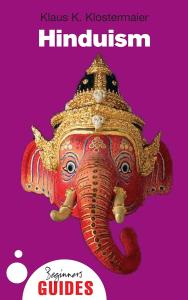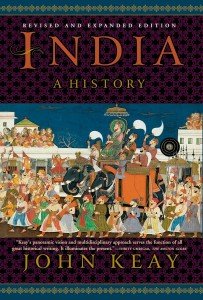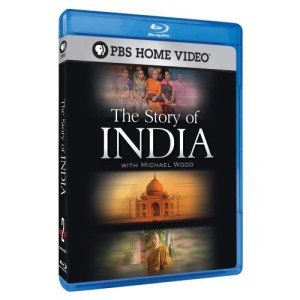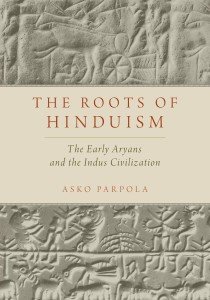Review of Rebirth and Karma by Sri Aurobindo
An exploration of the metaphysical and philosophical dimensions of life
Sri Aurobindo’s book, Rebirth and Karma, published by Lotus Press in 2009, offers readers a profound insight into the intricate workings of existence, exploring themes of reincarnation, karma, and the soul’s evolutionary journey. Within its pages, Aurobindo bridges ancient spiritual traditions with a modern philosophical outlook, creating a timeless analysis that resonates with seekers of truth across generations.
Overview of the Book
Rebirth and Karma delves into the intersections of spirituality and metaphysics, exploring how the spiritual principles of karma and rebirth contribute to the grand tapestry of life. Sri Aurobindo builds upon the foundations laid by Eastern spiritual traditions, particularly the Indian Vedantic philosophies, to examine not only the mechanics of reincarnation but also its purpose in the evolutionary march of consciousness.
The book is divided into several sections, each meticulously crafted to unravel the complexities surrounding these age-old concepts. Aurobindo begins by addressing the fundamental question: Why do we reincarnate? He proposes that the soul, driven by an innate urge to evolve, journeys through various lifetimes to accumulate experience, refine its essence, and align with the ultimate truth. For Aurobindo, rebirth is not merely a cycle of repetitive existence; it is a purposeful ascent toward spiritual realization.
The discussion of karma complements the dialogue on rebirth. Karma, often misunderstood as a simplistic cause-and-effect framework, is presented here as a dynamic force that shapes both individual and collective destinies. Aurobindo explores how karma operates in conjunction with the soul’s evolutionary aspirations, emphasizing its role in fostering spiritual growth, balancing energies, and resolving past tendencies. His interpretation of karma challenges conventional views, inviting readers to see it not as a punitive system but as a mechanism for transformation.
Key Themes
The Evolutionary Purpose of Rebirth
Sri Aurobindo reframes rebirth as a divine mechanism for the evolution of consciousness. He argues that the soul, as a spark of the infinite, is compelled to traverse countless lifetimes in pursuit of the ultimate truth. Through its numerous incarnations, the soul gathers wisdom, confronts challenges, and refines its spiritual essence. Aurobindo’s vision of rebirth as a process of ascension resonates deeply with seekers who perceive life not as a series of mundane events but as a sacred pilgrimage.
Karma as Transformation, Not Retribution
Another pivotal theme of the book is the reinterpretation of karma. Aurobindo encourages readers to move beyond the simplistic notion that good deeds yield rewards and bad deeds lead to punishment. Instead, he highlights karma’s transformative potential, portraying it as a celestial teacher guiding the soul toward equilibrium and harmony. Karma, in his view, is not an external force but a reflection of the soul’s inner movements, shaping and reshaping the path toward self-realization.
The Interconnectedness of Existence
Rebirth and Karma also explores the interconnectedness of individual and collective existence. Aurobindo asserts that the cycles of rebirth and the influence of karma are not isolated to the individual but are intricately woven into the collective experience of humanity. The evolution of one soul contributes to the evolution of the whole, underscoring the unity of all beings.
Philosophical Depth and Literary Brilliance
Sri Aurobindo’s literary style is as remarkable as his philosophical insights. His prose is poetic, dense with meaning, and imbued with an intuitive wisdom that invites readers to immerse themselves fully in the text. While the book’s depth may present challenges to those unfamiliar with metaphysical concepts, Aurobindo’s rigorous clarity ensures that even complex ideas are accessible and thought-provoking.
Who Should Read This Book?
Rebirth and Karma is an important source for anyone interested in spirituality, metaphysics, or philosophy. It appeals to seasoned practitioners of Eastern traditions as well as those new to these concepts. The book’s universal themes—self-discovery, transformation, and the search for meaning—make it relevant to readers from diverse backgrounds.
Biography of Sri Aurobindo
 Sri Aurobindo (1872–1950) was a spiritual visionary, philosopher, poet, and revolutionary who profoundly influenced modern Indian thought. Born in Calcutta, India, he received his early education in England, excelling in literature, classics, and philosophy at institutions like King’s College, Cambridge. Upon returning to India, he became involved in the country’s struggle for independence, advocating for freedom not only from colonial rule but also from the limitations of human consciousness.
Sri Aurobindo (1872–1950) was a spiritual visionary, philosopher, poet, and revolutionary who profoundly influenced modern Indian thought. Born in Calcutta, India, he received his early education in England, excelling in literature, classics, and philosophy at institutions like King’s College, Cambridge. Upon returning to India, he became involved in the country’s struggle for independence, advocating for freedom not only from colonial rule but also from the limitations of human consciousness.
Aurobindo’s spiritual journey took a transformative turn during his imprisonment in 1908. He experienced profound inner realizations and began his path toward spiritual mastery. His teachings blend Indian spiritual traditions with a modern philosophical framework, focusing on the evolution of consciousness and the integration of the divine into everyday life.
He established the Sri Aurobindo Ashram in Pondicherry, where he dedicated his life to writing, meditation, and guiding seekers on their spiritual journeys. His literary legacy includes monumental works such as The Life Divine, Savitri, and Essays on the Gita.
Conclusion
Rebirth and Karma by Sri Aurobindo is more than a book; it is an invitation to journey into the depths of existence, to explore the mystery of life, and to embrace the transformative power of spiritual growth. Lotus Press’s publication of this work ensures that Aurobindo’s timeless wisdom continues to inspire and enlighten readers worldwide. Whether you are a seasoned spiritual seeker or new to the realm of metaphysics, this book offers profound insights that will enrich your understanding of life’s purpose and the divine design of the cosmos.






